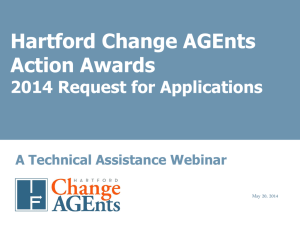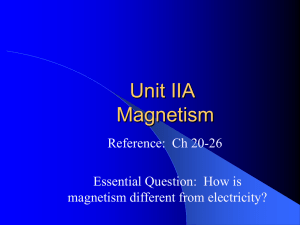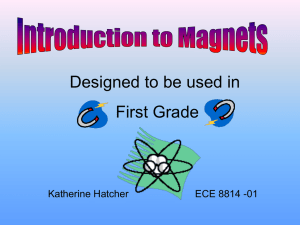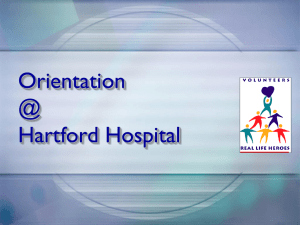Sheff Movement Stone Soup presentation 10-22-13
advertisement
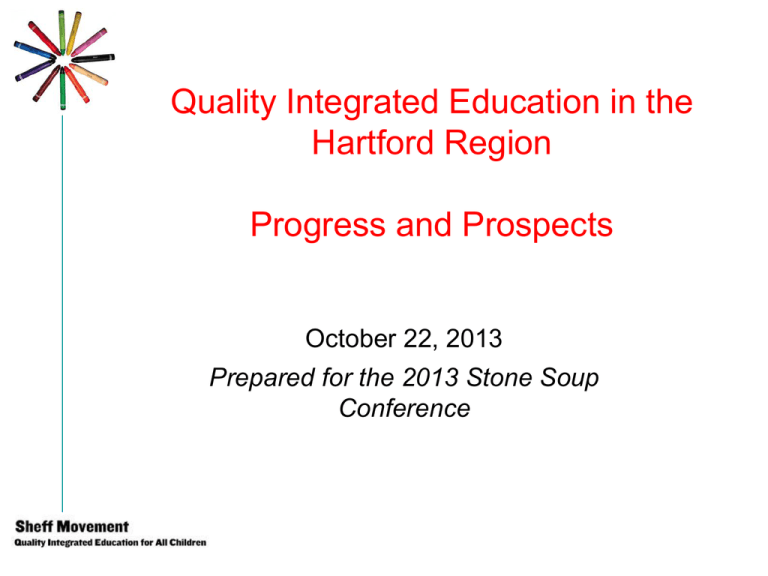
Quality Integrated Education in the Hartford Region Progress and Prospects October 22, 2013 Prepared for the 2013 Stone Soup Conference What is the Sheff Movement? ● We are a regional community based coalition of parents, educators, and community activists supporting continued expansion and improvement of quality, integrated education in the Hartford region. ● We are not part of the ongoing “Sheff v. O’Neill” lawsuit, but we strongly support the goals of the Sheff remedy. Growing Sheff program enrollments Today in the Hartford region: There are 40+ interdistrict magnet schools serving Hartford’s city and suburban children, and 30 school districts participating in Open Choice. Sheff enrollment continues to grow – we are awaiting official numbers for the current school year… The evolution of the Sheff mandate 1989: Sheff v. O’Neill filed in Hartford Superior Court on behalf of African-American, Latino, and white families; 1992-93: 11-week trial focusing on racial segregation, school poverty concentration, grossly unequal resources, and failing academic achievement outcomes; 1996: Connecticut Supreme Court ruling: segregated school conditions unconstitutional; state assignment of children to segregated school districts is the cause; state is responsible for an effective remedy – > An ongoing Constitutional mandate based on the right to equal educational opportunity in the Connecticut Constitution. > Continuing sense of urgency: “Every passing day denies [Hartford] children their constitutional right to a substantially equal educational opportunity.” The evolution of the Sheff mandate 1997: two-way voluntary structure established using combination of regional magnet schools and suburban “Project Choice” program – but no goals, benchmarks or timetables; 1998-2002: plaintiffs return to court (twice) to seek more rapid implementation; 2003: first settlement agreement adopted; fails to fully achieve goals, plaintiffs return to court in 2007; 2008: second settlement agreement adopted by the court – currently in effect through 2013; 2010: Hartford’s two-way integration program emerges as a national model 2012-13: Agreement for on year extension of phase 2 agreement 2013: Parties negotiating phase 3 agreement. Structure & Governance CT Commissioner of Education ─────────┬────────── Regional School Choice Office (RSCO) and SDE Sheff Office (RSCO runs annual lottery, fall school choice fairs, and satellite offices) ───┬────────┬─────────┬─────────┬───────┬────── Open Choice ● CREC Magnets ● HPS Magnets ● Other Magnets ● Voc-Tech schools Funding Basics ♦ Open Choice: suburban districts receive $6000 per student if Hartford students are at least 3% of total district enrollment; $8000 if at least 4% (additional incentive grants for capital costs and support services) ♦ Hartford Host Magnets: 90% school construction grant and $13,000 reimbursement per non-resident student ♦ CREC and other magnets: school construction grant plus $10,500 reimbursement per student, supplemented by payment from sending town Achievement gains ● 2013 state data show Hartford students in regional magnets and Open Choice at significantly higher achievement levels compared to Hartford students in traditional segregated schools ● Black, Latino, and “economically disadvantaged” Hartford students in CREC magnet schools are out-performing the state proficiency levels for their groups ● Black and Latino students in CREC Magnet schools are closing the “Achievement Gap” ● Students in most HPS and CREC magnet schools meet and exceed proficiency standards on state tests ● Hartford Host Magnet schools are helping to lead increasing overall achievement test gains for the Hartford Public Schools ● Graduation rates in HPS and CREC magnet high schools meet or exceed suburban rates 2013 achievement data (CT Dept of Education 9/13) Diversity in early education? • Children in K and pre-K are the most segregated children in America - Paul Jargowski, Rutgers University • New research on benefits of integration in early education > A positive association between the average SES of children in a preschool classroom and their receptive language, expressive language, and math learning. > Impact of diversity comparable in size to the relationship between children's own socioeconomic background and their learning during the pre-K year. > The socioeconomic compositional effect appears to operate through direct peer interactions - Jeanne Reid, "Socioeconomic diversity and early learning: the missing link in policy for high-quality preschools“ • Reinforced by evidence from Connecticut > research on pre-k language acquisition > closing the achievement gap by 3rd grade? Recent Awards National Blue Ribbon School •Annie Fisher STEM Magnet School Hartford “Teacher of the Year 2012”: •Keith Sevigny, Annie Fisher STEM Magnet School “America’s Best High Schools 2012” (US News & World Report): •Sport and Medical Sciences Academy •University High School of Science & Engineering “Best Magnet School in America” 2011 (Magnet Schools of America) • Hartford Magnet Trinity College Academy “Merit Schools of Excellence 2012” (Magnet Schools of America): •East Hartford-Glastonbury Elementary Magnet School •University High School of Science and Engineering “Merit Schools of Distinction 2012” (Magnet Schools of America): •Reggio Magnet School of the Arts, International Magnet School for Global Citizenship, Univ. of Hartford Magnet School, Breakthrough Magnet School, Environmental Sciences Magnet School at Mary Hooker, R.J. Kinsella Magnet School of Performing Arts, Sport and Medical Sciences Academy Challenges for the future → Expanding existing regional magnet schools → Adding new magnets for new audiences (Two-way dual language immersion schools?) → Identifying new Open Choice seats in the Hartford suburbs earlier in the spring – and increasing student support services → Continuing improvements for all Hartford Public Schools – along with expanded integration options → Ensuring a fair and inclusive marketing and lottery process – new strategies to reach underserved families → Improving parent education and participation in the school choice process → A stronger state commitment to school integration in Bridgeport, New Haven and other Connecticut regions What is the Sheff Movement? ● The Sheff Movement is co-chaired by Elizabeth Horton Sheff and Jim Boucher, and has regular monthly meetings of active members to plan organizing and advocacy goals ● The Sheff Movement helps to educate and mobilize city and suburban magnet school and open choice parents to become active supporters of their children’s educational choices. Visit us at www.sheffmovement.org ! What is the Sheff Movement? The Sheff Movement is a cosponsor of the upcoming regional school diversity conference – “Where Integration Meets Innovation” – November 8-9, in Hartford. Please join us!

